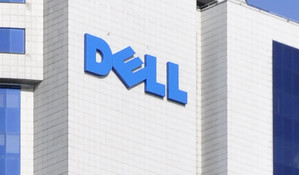Entries tagged as edellroot
browser ajax certificate clickjacking content-security-policy cryptography csp dell encryption firefox html https javascript khtml konqueror maninthemiddle microsoft php rss security sni ssl superfish tls vulnerability webcore websecurity xss algorithm android ca cacert ccc cccamp11 certificateauthority cloudflare eff facebook hash observatory openleaks openssl privatekey pss rsa sha1 sha256 symantec taz transvalid updates windowsxp x509 aiglx apache apt badkeys braunschweig bsideshn cccamp cccamp15 certificates chrome chromium cmi compiz crash crypto darmstadt datenschutz deb debian deolalikar diffiehellman diploma diplomarbeit easterhegg email english enigma fedora fortigate fortinet forwardsecrecy gentoo gnupg gpg gsoc hannover http itsecurity key keyexchange keyserver leak letsencrypt libressl linux math md5 milleniumproblems mitm modulobias mrmcd mrmcd101b nginx nist nss ocsp ocspstapling openbsd openid openidconnect openpgp packagemanagement papierlos password pgp pnp privacy provablesecurity random rc2 revocation revoke rpm rsapss schlüssel server sha2 sha512 signatures slides smime sso stuttgart talk thesis ubuntu unicode university utf-8 verschlüsselung web wordpress aead aes aok berserk bleichenbacher cfb cms gajim jabber joomla otr owncloud poodle update xmpp adguard antivirus breach cookies crime csrf freak heist kaspersky komodia netfiltersdk privdog protocolfilters samesite time 0days 27c3 addresssanitizer adobe afra altushost antivir asan auskunftsanspruch axfr azure barcamp bash berlin bias bigbluebutton blog bodensee botnetz bsi bufferoverflow bugbounty bundesdatenschutzgesetz bundestrojaner bundesverfassungsgericht busby bypass c cbc cellular chcounter clamav clang code conflictofinterest cookie cve dingens distributions dns domain drupal eplus fileexfiltration firewall freesoftware freewvs frequency fsfe ftp fuzzing gallery gcc ghost gimp git glibc gnutls gobi google gsm gstreamer hackerone hacking heartbleed helma infoleak informationdisclosure internetscan ircbot jodconverter karlsruhe lessig libreoffice luckythirteen malware mantis memorysafety mephisto mobilephones moodle mozilla mpaa mplayer mrmcd100b multimedia mysql napster nessus newspaper ntp ntpd onlinedurchsuchung openbsc openbts openvas osmocombb padding panda passwordalert passwort passwörter pdo phishing python rand redhat rhein s9y salinecourier science serendipity session shellbot shellshock sicherheit snallygaster sniffing spam sqlinjection squirrelmail staatsanwaltschaft stacktrace study subdomain sunras support tlsdate toendacms überwachung unicef useafterfree userdir virus vlc vortrag vulnerabilities webapps webmontag wiesbaden windows wiretapping xgl xine xsa zerodays zugangsdaten zzuf calendar ipv6 planet stadtmitte bugtracker core coredump github nextcloud segfault webroot webserver
 tl;dr Dell laptops come preinstalled with a root certificate and a corresponding private key. That completely compromises the security of encrypted HTTPS connections. I've provided an
tl;dr Dell laptops come preinstalled with a root certificate and a corresponding private key. That completely compromises the security of encrypted HTTPS connections. I've provided an